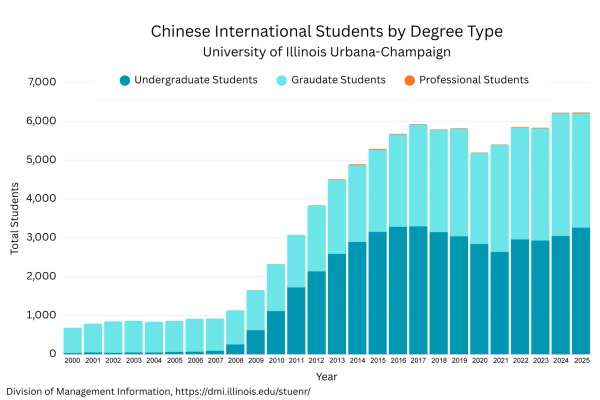Termination of Salaita is censorship

Aug 26, 2014
On August 1, Chancellor Phyllis Wise and Vice President Christophe Pierre emailed Steven Salaita to notify him of their decision to terminate any further action by the Board of Trustees to offer him a tenured position with the University faculty. According to a later email from the chancellor, this decision was based on inflammatory tweets on Salaita’s Twitter page about the Israeli-Palestinian conflict, and the fact that the language he used goes against the University’s commitment to creating a welcoming environment.
Debates surrounding the implications this decision has on the University’s stance on freedom of speech have been heating up.
Despite the fact that the University administration claims to uphold the principles of academic freedom, the actions that the administrators have taken against Salaita endorse censorship. The road to a censored community is a slippery one because defining what a student or faculty member might find inflammatory or offensive is a matter of opinion.
In a recent email sent out to University students by Chancellor Wise, she claims that “all of us — my administration, the University administration and I — absolutely are committed to (academic freedom).”
Allow me to point out a discrepancy between the actions of the administration and this claim.
Get The Daily Illini in your inbox!
The principles of academic freedom and freedom of speech come without qualifications; you are either free to say what you want or you aren’t. Although the Chancellor claims that it was how Salaita presented his political views in his tweets, not the stance he took that threatened the University’s learning environment, it doesn’t matter. With true freedom, one should have the ability to present any view, regardless of how extreme or how offensive the wording may seem. To uphold freedom of speech, you uphold it in its fullest — uncensored, untempered and unabbreviated.
Chancellor Wise’s email continued, “What we cannot and will not tolerate at the University of Illinois are personal and disrespectful words or actions that demean and abuse either viewpoints themselves or those who express them.”
The Chancellor and the Vice President drew the line between constructive academic debate and words that demean other viewpoints based on their standards and opinions. What the University administration deemed offensive, Salaita deemed tweetable. For the University administration to claim that people at the University can only express opinions within limits is the definition of censorship.
So, despite the fact that the Chancellor and the Board had the power to not give Salaita a tenured University faculty position, in this case, they are not upholding the principles of academic freedom. To me, emailing the student body in an attempt to hide the administration’s decision to uphold institutional censorship is misleading at best.
Given that the University went against the true doctrine of freedom of speech in order to control the learning environment, how far is the University administration willing to go? Since faculty and students alike contribute to the learning environment, where does the University administration’s “commitment to creating a welcoming environment” end?
If I were to start tweeting with the same fervor as Salaita, would the University administration come knocking on my apartment door? Should faculty members exercise caution with every word they use so as to avoid stepping on administrators’ toes? Are they going to start banning books and websites that are deemed abusive or demeaning by the standards of the Chancellor and the Vice President?
The entire premise has Ray Bradbury rolling in his grave.
In light of this event, the University administration should come to terms with the fact that their actions against Steven Salaita are the actions of censors, and in doing so, they are not in support of freedom of speech. Additionally, the administration needs to define exactly what kind of learning environment they want to outline and abide by at this University: an academically free environment where students and professors express their opinions without restrictions, or a censored one, where we have to worry about what words administrators may deem improper.
Stephanie is a junior in LAS. She can be reached at [email protected]. Follow her on Twitter @syoussef22.





